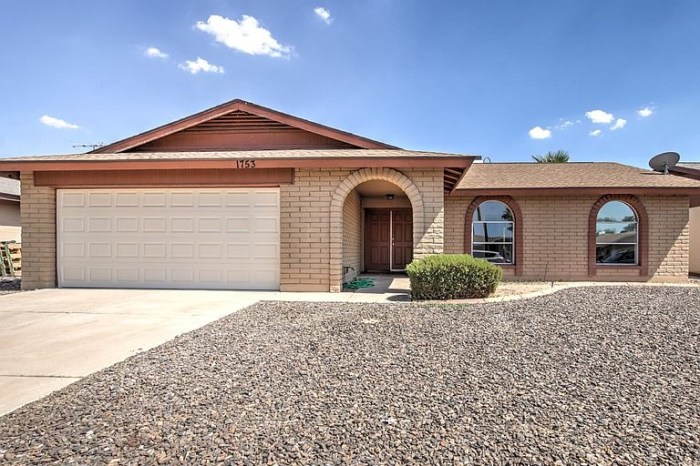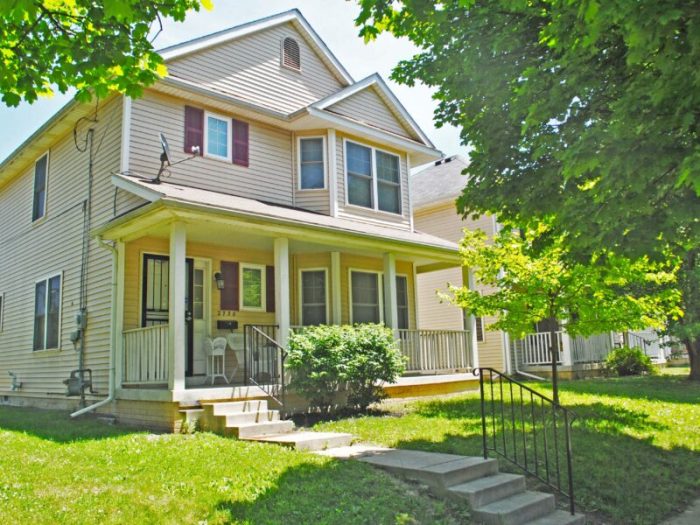House for Rent Private Owners A Comprehensive Guide
Understanding the Private Rental House Market
The market for privately owned rental houses is a dynamic segment of the real estate landscape, characterized by diverse renter profiles and fluctuating rental prices. Understanding this market is crucial for both landlords and tenants to navigate the process successfully.
Typical Renter Profiles Seeking Privately Owned Rental Houses

Source: windows.net
Renters seeking privately owned houses often exhibit diverse profiles. Some are families seeking larger spaces and yard access, while others are young professionals prioritizing location and amenities. Many value the potential for a more personalized landlord-tenant relationship compared to larger property management firms. Budget constraints are also a significant factor, influencing the type of property and location chosen.
Key Factors Influencing Rental Prices in the Private Rental Market
Several key factors influence rental prices in this market. These include:
- Location: Proximity to desirable amenities, schools, and employment centers significantly impacts rental rates.
- Property Condition and Features: Updated kitchens, modern bathrooms, and desirable features like a garage or finished basement command higher rental prices.
- Market Demand: High demand in a specific area naturally drives up rental rates.
Comparing Private Owners and Property Management Companies
Renting from a private owner or a property management company presents distinct advantages and disadvantages:
| Feature | Private Owner | Property Management Company |
|---|---|---|
| Personalization | High potential for personalized service and communication | Lower level of personal interaction |
| Maintenance Response | Response time may vary | Generally faster and more structured maintenance processes |
| Legal Expertise | May lack extensive legal knowledge of landlord-tenant laws | Usually possess greater familiarity with legal requirements |
| Professionalism | Can vary widely | Typically follows standardized procedures |
Legal Considerations in Private Rental Agreements
Both landlords and tenants must understand the legal framework governing private rental agreements. These include adhering to fair housing laws, ensuring the property meets safety standards, and establishing clear terms within the lease agreement regarding rent, utilities, and responsibilities for repairs.
Marketing and Advertising Strategies for Private Rental Listings
Effectively marketing a privately owned rental property requires a strategic approach, utilizing various channels and compelling visuals to attract qualified tenants.
A Compelling Advertisement for a Privately Owned House
Example Ad: “Charming 3-bedroom house in desirable neighborhood. Updated kitchen, spacious backyard, and close to parks and schools. $2,500/month. Contact [phone number] for viewing.” This ad highlights key features (3 bedrooms, updated kitchen, spacious backyard, location) and provides essential information (rent, contact).
Effective Platforms for Advertising Rental Properties
Three effective platforms for advertising include:
- Online Classifieds (e.g., Craigslist, Zillow): Wide reach and cost-effective options.
- Social Media (e.g., Facebook, Instagram): Targeted advertising and community engagement.
- Local Real Estate Websites: Access to a local audience actively searching for rental properties.
Creating Professional-Looking Property Photos
High-quality photos are crucial for attracting potential renters. A step-by-step guide involves:
- Clean and declutter the space.
- Optimize lighting (natural light is ideal).
- Use a high-resolution camera or smartphone.
- Edit photos using photo editing software (see comparison table below).
| Software | Cost | Ease of Use | Features |
|---|---|---|---|
| Adobe Lightroom | Subscription | Intermediate | Extensive editing tools, professional-grade results |
| GIMP | Free | Beginner to Advanced | Open-source, versatile, powerful tools |
| Snapseed | Free | Beginner | Mobile-friendly, user-friendly interface |
| Canva | Free/Subscription | Beginner | Easy-to-use interface, templates available |
Sample Social Media Post Promoting a Rental Property
Example Post: “Beautiful 2-bedroom condo available now! Modern kitchen, in-unit laundry, and stunning city views. DM for details! #rental #apartment #cityliving #forrent”
Tenant Screening and Selection Process
A thorough tenant screening process is essential to minimize risks and ensure a positive landlord-tenant relationship.
Steps in a Thorough Tenant Screening Process
The process typically involves:
- Collecting applications and verifying information.
- Conducting background checks (criminal history).
- Reviewing credit reports.
- Verifying employment and rental history.
- Conducting interviews.
Essential Questions for Prospective Tenants
Five essential questions to ask prospective tenants include:
- What is your reason for moving?
- What is your anticipated length of stay?
- What is your monthly income?
- Do you have any pets?
- What are your expectations regarding maintenance and repairs?
Importance of Background Checks and Credit Reports
Background checks and credit reports help assess a tenant’s reliability and financial stability. This mitigates the risk of late rent payments or property damage.
Using a Scoring System to Evaluate Potential Tenants
A scoring system can help objectively evaluate potential tenants based on criteria like credit score, rental history, and income. Each criterion can be assigned a point value, providing a numerical score for each applicant.
Finding a house for rent from private owners often offers unique advantages, like personalized interactions and potentially flexible lease terms. If you’re interested in townhouses, a great starting point is to check out resources like this website for town houses for rent near me to see what options are available. Then, you can compare those options with other houses for rent from private owners to find the perfect fit for your needs and budget.
Lease Agreements and Rental Management
A well-drafted lease agreement protects both the landlord and tenant. Efficient rental management systems are crucial for smooth operations.
Sample Lease Agreement Clause Addressing Pet Policies
Example Clause: “Pets are allowed with a non-refundable pet fee of $300 and an additional monthly rent of $50 per pet. Landlord approval is required for all pets.” This clause clearly Artikels the pet policy, including fees and approval process.
Handling Security Deposits and Legal Implications
Security deposits must be held in a separate account and returned to the tenant upon lease termination, minus deductions for damages beyond normal wear and tear. Landlords must adhere to state laws regarding the handling and return of security deposits.
Common Lease Violations and Their Consequences
Common lease violations include late rent payments, property damage, unauthorized pets, and subletting. Consequences can range from late fees to eviction.
System for Tracking Rent Payments and Maintenance Requests
| Tenant Name | Rent Due Date | Rent Paid Date | Maintenance Request |
|---|---|---|---|
| John Doe | 01/15/2024 | 01/12/2024 | Leaking faucet |
| Jane Smith | 01/15/2024 | 01/16/2024 | None |
Handling Maintenance and Repairs
Prompt and efficient maintenance is crucial for maintaining property value and tenant satisfaction.
Common Maintenance Issues and Solutions
Three common issues include:
- Plumbing Leaks: Contact a plumber for repairs.
- Appliance Malfunctions: Contact a repair service or replace the appliance.
- Pest Infestations: Hire pest control services.
Landlord’s Responsibilities Regarding Repairs and Maintenance
Landlords are typically responsible for repairing major systems (heating, plumbing, electrical) and ensuring the property remains habitable. Specific responsibilities vary by state and local laws.
Managing Maintenance Requests Efficiently
An efficient system involves promptly acknowledging requests, assigning tasks, and tracking progress. Using a digital system or spreadsheet can streamline the process.
Importance of Preventative Maintenance

Source: vmc.org
Preventative maintenance, such as regular inspections and cleaning, can prevent minor issues from escalating into costly repairs, extending the lifespan of the property and reducing unexpected expenses.
Addressing Tenant Concerns and Disputes
Effective communication and conflict resolution are essential for maintaining positive landlord-tenant relationships.
Common Tenant Complaints and Solutions
Common complaints include noise issues, maintenance delays, and parking problems. Addressing these complaints promptly and fairly helps prevent escalation.
Handling Tenant Disputes Professionally
A fair and professional approach involves clear communication, documentation, and a willingness to mediate. If mediation fails, legal recourse may be necessary.
Importance of Clear Communication
Open and transparent communication is crucial for building trust and preventing misunderstandings. Regular communication, whether through email or in-person meetings, can foster a positive relationship.
Procedures for Evicting a Tenant
Eviction is a legal process that requires following specific procedures Artikeld in state and local laws. This typically involves providing proper notice, filing legal paperwork, and obtaining a court order.
FAQ Overview
What are the typical costs associated with renting from a private owner?
Costs beyond rent can include security deposits, application fees, and potentially utilities (depending on the lease agreement).
How can I find a reputable private landlord?
Utilize online platforms, network through personal connections, and thoroughly vet potential landlords by checking reviews and references.
What happens if repairs are needed during the tenancy?
The lease agreement should Artikel the responsibilities of both landlord and tenant regarding repairs. Typically, the landlord is responsible for major repairs, while tenants may be responsible for minor issues.
What if I have a dispute with my private landlord?
Attempt to resolve the issue through communication. If that fails, consider mediation or legal action as Artikeld in your lease or local laws.




















